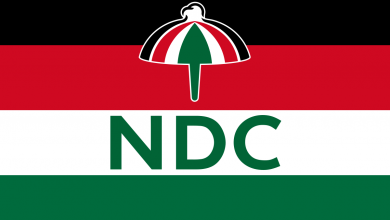NDC offers reasons for their legal action against the EC over limited voter registration

The National Democratic Congress (NDC), in justifying its legal action against the Electoral Commission (EC) regarding the forthcoming limited voter registration exercise, alleges that the EC’s decision to confine the process to its district offices is aimed at suppressing votes and manipulating the 2024 elections.
It is for this reason that the NDC has teamed up with four other political parties to initiate legal proceedings against the EC.
Last month, the Electoral Commission announced its plans to conduct a limited voter registration exercise from September 12 to October 2 exclusively at its district offices nationwide. The NDC and the four other political parties promptly filed a lawsuit against the Electoral Commission in the Supreme Court regarding this exercise.
The other four political parties involved are the Convention People’s Party (CPP), All People’s Congress, Liberal Party of Ghana, and the Great Consolidated Popular Party.
These political parties argue that the EC’s decision to limit voter registration to district offices has the potential to disenfranchise many eligible voters, denying them the opportunity to register for participation in public elections.
To address this concern, the parties have submitted an application for an interlocutory injunction to prevent the EC from proceeding with the announced limited voter registration exercise until a final decision is made on the main issue.
In an interview held in Accra on Thursday, Sammy Gyamfi, the Communications Officer of the NDC, explained, “You know why they want to do this? Because by restricting the registration centres to their district offices, it will be possible for them not only to suppress votes…but the second objective is to rig the process through gerrymandering.”
“Where the registration is done at the electoral area level, the key stakeholders in the process who are the political parties are able to recruit, train, and deploy polling agents who reside in that catchment area. And so, if a person comes to be registered and the person does not reside in that area, they will be able to challenge that registration,” he stated.





